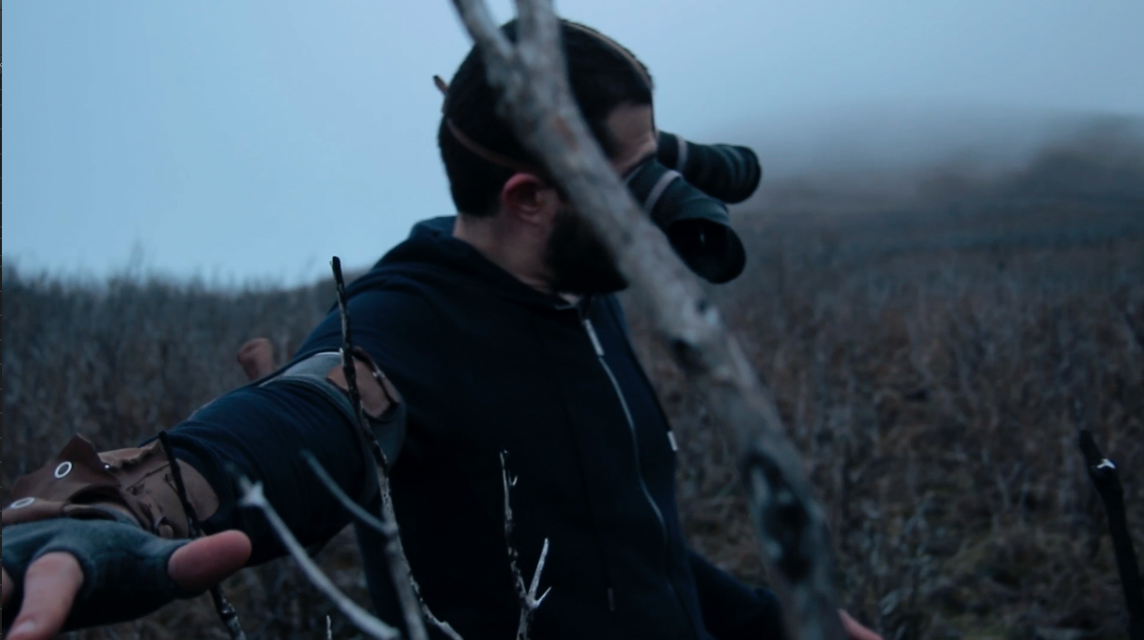The Augmented Attention Lab is a four-day pressure cooker that brings together a diverse group of practitioners to create and test prototypes and cognitive methods that adapt and transform human attention towards varied intensities and scales of change within our environment. We invite designers, artists, technologists, researchers and theorists to collaboratively build on each others’ knowledge during an intensive development period where new projects can emerge and existing projects can take on new and unexpected directions.
The deadline for applications is April 15, 2019!
The Augmented Attention Lab
“Artists are making present and composing attention”
— Tim Ingold, The Perception of the Environment
It is becoming evident that the multiple social platforms, screens and technological devices that we surround ourselves with scatter and fragment our attention. This poses a problem from an evolutionary perspective, as our ability to attend, react and adapt to the environmental changes occurring around us are the determining factor of our survival as a species. In a present where environmental change is the single biggest challenge to our species, how can an awareness of our perceptual limitations foster new ways of creating technologies and practices for augmenting our own modes of attention?
The Augmented Attention Lab is a nomadic platform that gathers practitioners from diverse fields who wish to confront this question through interdisciplinary collaboration. We attempt to facilitate a fertile experimentation space where designers, creative technologists, theorists and researchers can benefit from each others’ expertise in actualizing new sensory paradigms through cognitive “hacks” and technological prototypes. As facilitators, we organise exercises and field trips and bring our own skills to the table, while also inviting guests who provide additional skills, technical platforms and research methods to the group. Participants are free to form new collaborations on the spot or bring already existing projects to work on during the period of the lab.
This lab departs from Sensory Cartographies, an artistic-research and design project that conceptualizes and develops wearable mapping technologies and practices that take into consideration the constant flux of change that plays out at the interface between body, consciousness and world.
3rd – 6th of June
Bratislava, Slovakia
Participation is Free of charge
Facilitated by Jonathan Reus & Sissel Marie Tonn
Applications are accepted until April 15th, 2019
Participate
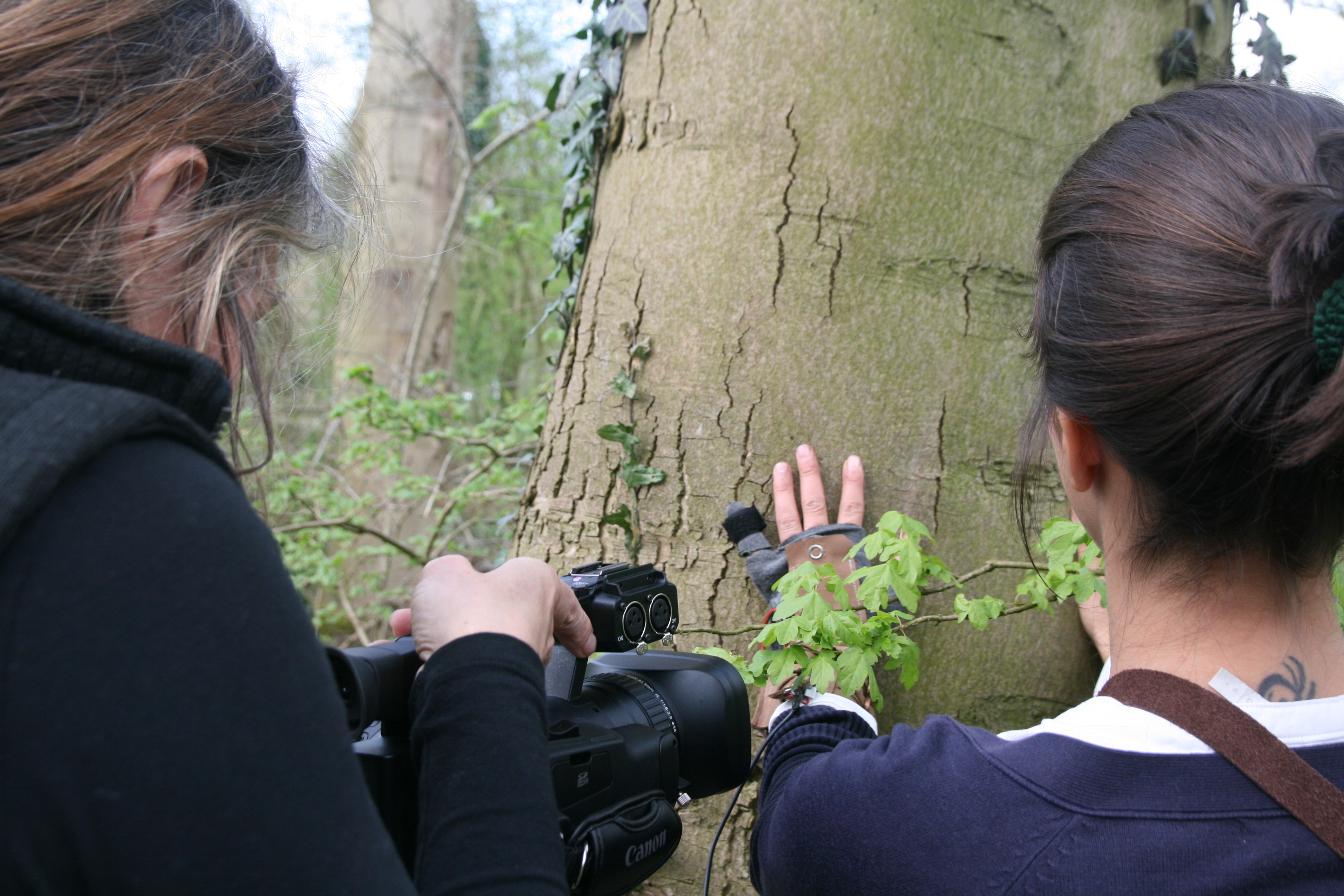 The Augmented Attention lab is looking for practitioners who are interested in developing bodily and sensory extensions that afford awareness and attention towards our surroundings, and who wish to engage with these issues through a collaborative making process. We look for a mix of artists, designers, musicians, consciousness and cognition researchers, ecologists, creative technologists, etc.. who are willing to step out of their comfort zone for a 4 day intensive pressure cooker. The facilitators of the lab are particularly experienced in the development of wearable sensor systems, wearable computing and e-textile fabrication, and interactive sound technologies, and will provide access to the specific platforms we use for those who are interested. However all project ideas are welcome no matter the platform or medium, so long as the participant is interested in developing work that challenges the perceptual and sensory modes of the body within its environment.
The Augmented Attention lab is looking for practitioners who are interested in developing bodily and sensory extensions that afford awareness and attention towards our surroundings, and who wish to engage with these issues through a collaborative making process. We look for a mix of artists, designers, musicians, consciousness and cognition researchers, ecologists, creative technologists, etc.. who are willing to step out of their comfort zone for a 4 day intensive pressure cooker. The facilitators of the lab are particularly experienced in the development of wearable sensor systems, wearable computing and e-textile fabrication, and interactive sound technologies, and will provide access to the specific platforms we use for those who are interested. However all project ideas are welcome no matter the platform or medium, so long as the participant is interested in developing work that challenges the perceptual and sensory modes of the body within its environment.
The 4 day pressure cooker will consist of presentations of the lab facilitators (Sissel & Jonathan) and mentors Marcello Lussana and George Profenza (see bios below), as well as facilitate the projects and possible collaborations of the participants. We will focus on introducing you to the methods and hardware we use in our research, as well as facilitate the use these methods and hardware for your projects. Furthermore we will be going on field trips in Bratislava and beyond, that can inspire new ways of thinking across our respective practices.
Will your practice or project benefit from being part of this lab? Then submit your entry for our open call here, by April 15th! The Sensorium team and lab facilitators will then select a fitting team of participants from the submissions to ensure a rich and diverse group.
Practicalities
The Augmented Attention Lab will take place in Bratislava, Slovakia from the 3rd – 6th of June. Participation in the lab is free (thanks to generous support by the Goethe Institut Bratislava). Note that participants need to arrange and pay their own travel to and accommodation in Bratislava. There will be tools available for production and prototyping on site such as 3D printers, soldering stations and sewing machines. Additional tools are potentially available upon request.
The lab is part of Sensorium Festival: the first Slovak festival making sense of creative technology. The main Sensorium programme takes place June 7th – 9th featuring conference program, interactive exhibition, live performances and cross-disciplinary workshops. Throughout 2019 Sensorium addresses the theme ‘The Augmented Mind’.
The Augmented Attention Lab will culminate in an open lab session at the beginning of Sensorium Festival. Festival visitors will be invited to look behind the scenes, test prototypes and talk with lab participants about their work.
About the Facilitators
Sissel Marie Tonn & Jonathan Reus
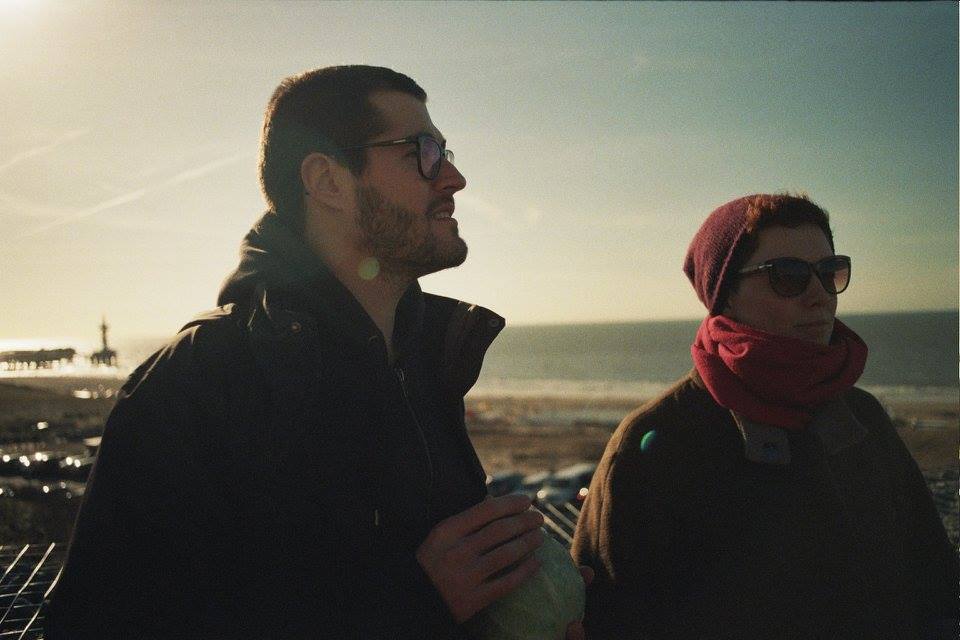 Sissel Marie Tonn & Jonathan Reus are the co-founders of The Augmented Attention Lab. They began working together as Sensory Cartographies in 2016, an ongoing artistic research project and platform for exploring ways in which human attention to environmental flux can be mediated for survival.
Sissel Marie Tonn & Jonathan Reus are the co-founders of The Augmented Attention Lab. They began working together as Sensory Cartographies in 2016, an ongoing artistic research project and platform for exploring ways in which human attention to environmental flux can be mediated for survival.
Sissel Marie Tonn is a Danish artist/designer working with textiles, wearable sculpture and forms of spoken narrative. Her work focuses on human perception of environments undergoing change, and is particularly inspired by feminist/post-humanist ideas of materiality and entanglement by Rosi Braidotti and Astrida Neimanis, the anthropological work on umwelts and attention of Anna Tsing and Tim Ingold, the death-defying architects Arakawa & Gins and the relational objects of Lygia Clark. During the Augmented Attention Lab she will be facilitating participants in prototyping with textile and other materials, proposing “mind hacking” practices, and sharing insights from her research at specific sites of local ecological change across the world.
Jonathan Reus is an experimental composer who explores new ways of music making through technological/critical practices. His work often involves deep research into new tools and technologies for musical and performative expression that value sensitivity, mindfulness and fragility as their core components. During the Augmented Attention Lab he will facilitate participants in working with wearable sensing and computing system, working with and through sensor data and environmental datasets, and exploring the possibilities for music, sound and vibration to enhance the sensory spectrum. He and Sissel will provide a number of mobile sensor/sound platforms for participants to work with if they choose, using the Bela platform.
Marcello Lussana
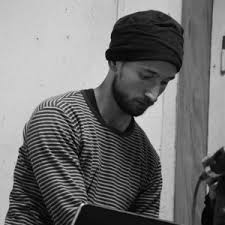 Marcello Lussana (1979) is a multidisciplinary researcher/composer/designer who combines the practices of music, philosophy, cognitive science and creative technology into a cohesive whole. His work deals specifically with embodied interaction between music and intimate human movement, where body and computer are connected through a complex understanding of body perception and carefully designed interfaces. After completing his study at the University of Foreign Languages in Bergamo (IT), he earned a Master in Technology and Communication at Torino (IT). In 2010, he attended the Master of Sound Studies program at the University of Arts in Berlin (UdK, DE). Since 2012, he has been a core contributor to MotionComposer, a movement-music platform designed for differently-abled bodies, and has been a composer for the European project Metabody, which explores technologically expanded concepts of bodily expression.
Marcello Lussana (1979) is a multidisciplinary researcher/composer/designer who combines the practices of music, philosophy, cognitive science and creative technology into a cohesive whole. His work deals specifically with embodied interaction between music and intimate human movement, where body and computer are connected through a complex understanding of body perception and carefully designed interfaces. After completing his study at the University of Foreign Languages in Bergamo (IT), he earned a Master in Technology and Communication at Torino (IT). In 2010, he attended the Master of Sound Studies program at the University of Arts in Berlin (UdK, DE). Since 2012, he has been a core contributor to MotionComposer, a movement-music platform designed for differently-abled bodies, and has been a composer for the European project Metabody, which explores technologically expanded concepts of bodily expression.
Marcello currently lives and works in Berlin where he produces computer music for audio-visual performances, dance, theater and live electronics. Since 2016 he has been working on a doctoral research project at Humboldt University Berlin on the subject of interactive music and body perception. He is co-founder of the research project Sentire, a technological platform and research platform for exploring touch through the perspective of sound and cognitive science. Marcello will facilitate the lab through providing his skills as a sound designer, composer and giving a workshop on ‘microphenomenology‘ methods, a research technique for understanding the lived experience of technological mediations. He will also provide access to the Sentire system for those interested in exploring touch as a mode of environmental perception.
George Profenza
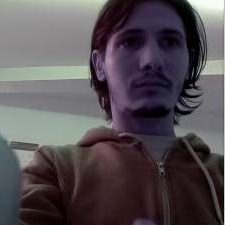 George Profenza is a creative technologist with experience in a wide variety of platforms for developing interactive sensing and data processing work, and is the general maker of interactive magic at London art/design studio Hirsch & Mann , where he works to bridge the visions of designers with engineering realities.
George Profenza is a creative technologist with experience in a wide variety of platforms for developing interactive sensing and data processing work, and is the general maker of interactive magic at London art/design studio Hirsch & Mann , where he works to bridge the visions of designers with engineering realities.
George’s specialisations lie in mobile and portable computer vision, software interfacing between hardware and sensor technologies, and real-time computer graphics. He is a graduate of Goldsmiths Creative Computing and the Bartlett’s Architecture + Computation programs. In general he is interested in how art, design and technology intersect to create unique works that are fun, curious and engaging. He believes that rich and unexpected outcomes are the result of a hybrid approach that embraces analytical precision, hands-on experimentation, and a good dose of fearless hacker enthusiasm. George spends his spare time bringing robots and puppets to life and finding artistic inspiration in paper folding, doodling and complex geometry.
George will bring his myriad technical skills and experience in facilitating design concepts to the lab in order to facilitate the development of new prototypes and cognitive-technological methods.
Applications close April 15th
With financial support of
In partnership with
